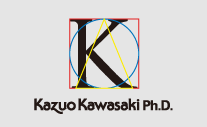Machine
Marketing
Mass communication
Material (sozai)
Mathematical Model
Merchandising
Mobile
Mode
Mono(Japanese for "thing")
Multimedia
Machine
The word kikai (machine) in Japanese starts from the word kikai (instrument or tool; different character&sbquo same pronunciation). The first character of the latter is for Musical instruments and the second character means weapon. The expression kikai (machine) has been used since 1874. Machine went from the Greek machine to the Latin mavhina and then to modern use. The ancient Greek mathematician Heron used the word machine to describe the lever&sbquo lathe&sbquo wedge&sbquo screw&sbquo and wheel&sbquo all of which use a fixed degree of force to move a fixed weight. Since then&sbquo we have been able to define&sbquo from an historical perspective&sbquo the difference between a machine and a tool. The most traditional definition of machine was stipulated by Franz Reuleaux. However machine is a combination of objects with resistance in an arrangement through which various dynamic forces provided by nature can cause fixed motion such that work can be performed. However&sbquo with the advent of electrical control and information processing devices&sbquo this concept of the machine had to change. Moreover&sbquo equipment employing chemical reactions and their systematization must also be defined as machines. The problem is the role of human being in these kinds of mechanical systems. Initially&sbquo both power and the control of machines could be borne by human beings. Next&sbquo however&sbquo the development and realization of fuel power meant that our work was reduced to mere control. In the third stage&sbquo work has become the extremely simple task of overseeing and guarding the mechanization of control. The trend is for human work to become mechanical. In response to the mechanization of human beings there is a call for more humanity. This humanity is the ideal human stance towards machines&sbquo and the important and pressing matter is that philosophically&sbquo ethically&sbquo and politically solving the mechanization of social systems themselves is expected to improve the relationship between human beings and mechanization or the evolving machine. Regarding this expecting&sbquo design is today required to propose and interactivity in the man/machine interface.









